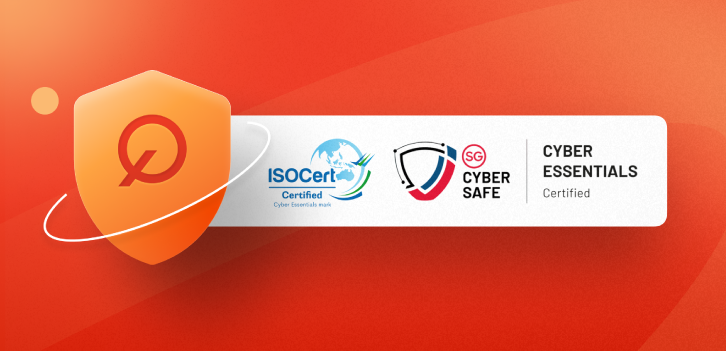Starting a new business is challenging. You need to build the right team, attract customers, and select effective tools for managing billing, task management, HR, sales, leads, and more. In this article, I’ll share the top 10 opensource tools for business startups to help you streamline your search. But, you need to know the benefit first.
Table of Contents
ToggleBenefits of Using Open-Source Tools to Increase Productivity
In the fast-paced business world, startups need to optimize their resources effectively. One of the best ways to boost efficiency is by using open-source software. Here are some key benefits:
1. Cost Efficiency
Open-source software is free or significantly cheaper than paid software. Startups can allocate their budgets to other essential areas like product development or marketing without being burdened by expensive licensing fees.
2. Flexibility and Customization
Unlike paid software, which often comes with restrictions, open-source tools allow users to modify the source code to fit their business needs. This gives startups the freedom to tailor software solutions without relying on a single vendor.
3. Better Security and Transparency
The source code of open-source software is accessible to everyone, allowing a global community to identify and fix security vulnerabilities quickly. This transparency often makes open-source software more secure than proprietary software with closed-source code.
4. Strong Community Support
Many open-source projects have active communities that provide regular updates, tutorials, and solutions to technical issues. Startups can leverage these resources instead of paying for expensive customer support services.
5. Easy Integration with Other Tools
Most open-source software supports integration with other tools via APIs and plugins. This allows startups to build a flexible tech ecosystem without being locked into one vendor’s ecosystem.
For startups, choosing the right tools can significantly impact productivity, efficiency, and growth. Open-source software provides a cost-effective, flexible, and secure alternative to paid solutions, making it an excellent choice for businesses that need customization and scalability without high licensing fees.
Also Read: Top 10 Hot Trending Mobile App Marketing Strategies
10 opensource tools for business
1. Taiga
Taiga is a project management tool that offers a beautiful, intuitive interface for managing tasks, sprints, and backlogs. Its Kanban and Scrum boards make it easy for teams to collaborate and stay organized, making it ideal for startups looking for a free project management solution.
2. Mattermost
For effective team communication, consider Mattermost. This open-source messaging platform allows you to create channels, share files, and integrate with other tools. It’s a great alternative to proprietary chat applications, giving you full control over your data.
3. Odoo
Odoo is an all-in-one open-source business management software that includes modules for CRM, project management, invoicing, and more. Its flexibility allows startups to customize the platform to meet their specific needs without incurring hefty licensing fees.
4. Dolibarr
For financial management, Dolibarr is an open-source ERP and CRM solution that simplifies invoicing, expense tracking, and customer management. It’s user-friendly and suitable for small businesses looking to streamline their financial processes.
5. Mautic
Email marketing is crucial for startups, and Mautic provides a powerful open-source platform for creating and managing email campaigns. With automation features and detailed analytics, it helps you engage with customers effectively.
6. OnlyOffice
If you need document management and collaboration tools, OnlyOffice offers a robust open-source suite that includes document editing, spreadsheets, and presentations. It integrates well with other platforms, making it easy for teams to collaborate in real time.
7. Nextcloud
For file storage and sharing, Nextcloud is an excellent open-source solution. It allows you to host your own cloud storage, giving you complete control over your files while providing collaboration features like file sharing and versioning.
8. Frappe
Frappe is a web application framework that includes ERPNext, an open-source ERP solution. It covers a wide range of business processes, including accounting, inventory, and HR, making it a comprehensive tool for startups looking to manage their operations efficiently.
9. Zimbra
For email and collaboration, Zimbra offers an open-source solution that includes email, calendar, and file sharing features. It’s a great way to manage communication and collaboration within your team without relying on third-party services.
10. OpenProject
OpenProject is an open-source project management software that supports agile and traditional project management methodologies. With features like Gantt charts, time tracking, and task management, it’s perfect for startups looking to keep their projects on track.
Conclusion
Choosing the right tools is crucial for the success of your startup. The top 10 open-source business tools for startups listed above cover various aspects of running a business, from project management to financial tracking and collaboration. By leveraging these resources, you can save costs, maintain control, and focus on what truly matters—growing your business.
What open-source tools have you found most helpful in your startup journey? Share your thoughts in the comments below!
As the leader of a team of full-stack developers, Eddie Cheng combines hands-on experience with a love for writing and sharing insights on cutting-edge technology. From web design and app development to corporate IT systems, Eddie Cheng brings deep expertise and a practical perspective to every article.
In addition to writing and reading about technology, Eddie Cheng enjoys sharing findings with a wider audience, helping readers navigate the fast-paced world of tech.
- Top #5 Best SSD VPS 2025 - April 8, 2025
- WP Engine Banned from WordPress - March 28, 2025
- Top 10 Opensource Tools for Business - March 28, 2025



